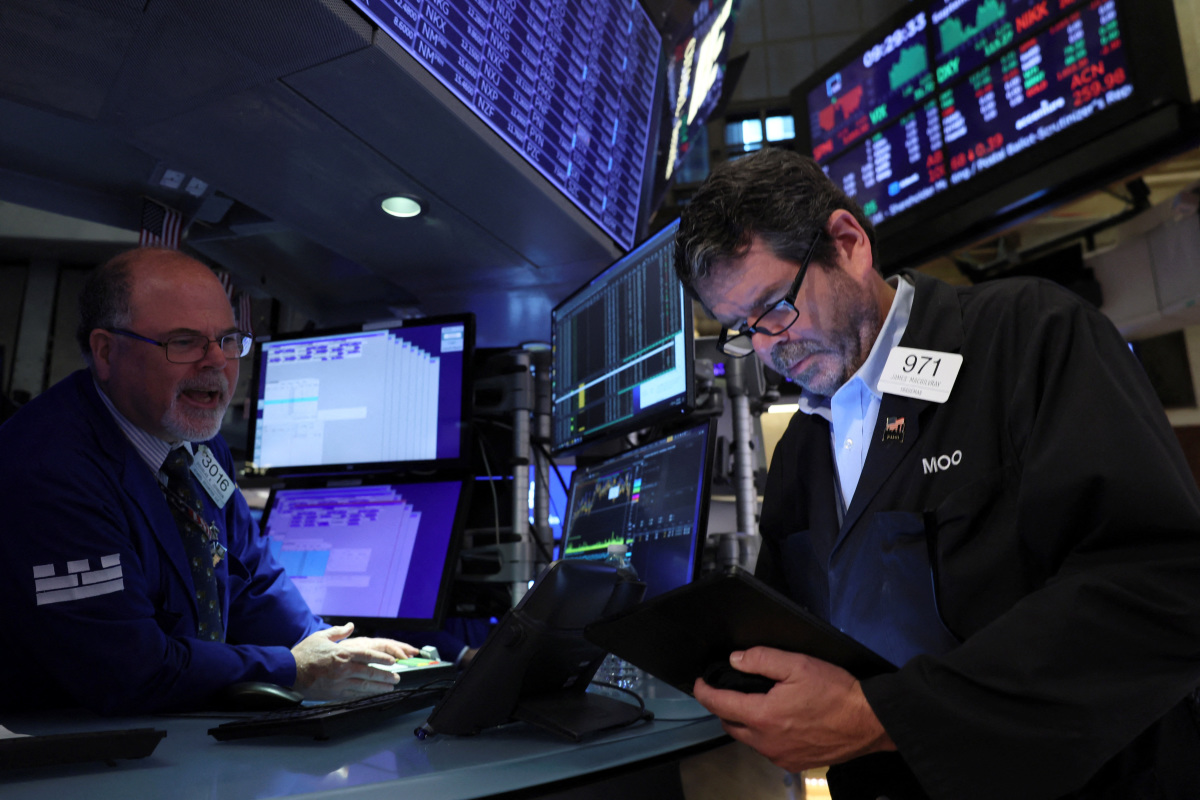U.S. stock indexes were set to open higher on Monday after sharp losses last week although losses in Tesla Inc capped the gains for Nasdaq futures after the world’s most valuable electric-vehicle maker missed quarterly delivery targets.
All three major indexes ended a volatile third quarter lower on Friday on growing fears that the Federal Reserve’s aggressive monetary policy will tip the economy into recession. [.N]
At 08:34 a.m. ET, Dow e-minis were up 275 points, or 0.95%, S&P 500 e-minis were up 31.25 points, or 0.87%, and Nasdaq 100 e-minis were up 59 points, or 0.53%.
Oil majors Exxon Mobil and Chevron Corp rose 3% in premarket trading, tracking the jump in crude prices as sources said the Organization of the Petroleum Exporting Countries and its allies are considering their biggest output cut since the start of the COVID-19 pandemic. [O/R]
Tesla Inc fell 4.9% on reporting lower-than-expected electric vehicle deliveries in the third quarter.
Major automakers are expected to report modest declines in U.S. new vehicle sales, but analysts and investors are concerned that a darkening economic picture, not inventory shortages, will lead to a drop in future car sales.
Other megacap growth and technology companies such as Meta Platforms and Microsoft advanced 0.9% each in trading before the bell.
“We could see a rebound in the beginning of the quarter simply due to the low sentiment and the lows that were reached at the tail-end of the last quarter,” said Jason Pride, chief investment officer for private wealth at Glenmede in Philadelphia.
“We suspect during the quarter it is going to become more apparent that we are getting closer to a recession as the Fed continues to increase interest rates and that should eventually weigh on the market again and probably keep the market closer to, if not below, the lows that it is already at.”
Meanwhile, data showed global factory output mostly weakened in September as slowing demand added to the pain from persistent cost pressures and tighter monetary policy, diminishing economic recovery prospects.
Investor focus will be on ISM manufacturing index data for September at 10 a.m. ET, at a time when the world’s largest economy is grappling with overshooting price pressures.
Credit Suisse and Citigroup became the latest brokerages to bring down their 2022 year-end targets for the S&P 500 index, as U.S. equity markets bear the heat of aggressive central bank actions to tamp down inflation.
Credit Suisse also set a 2023 year-end price target for the benchmark index at 4,050 points, adding that 2023 would be a “year of weak, non-recessionary growth and falling inflation.”







